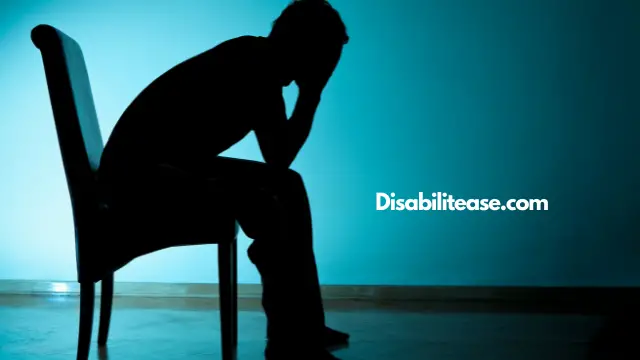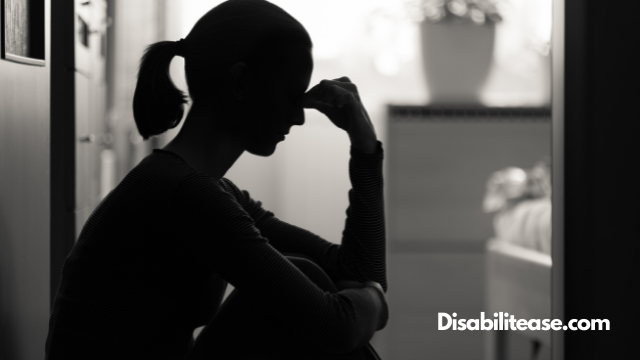Can dyslexia make you depressed? Let’s Discuss. Dyslexia is an innate reading disorder associated with the brain. It weakens the ability to recognize graphic symbols and sounds of speech. Dyslexic patients cannot read, write, spell, recognize sounds or make words properly.
Although many patients with dyslexia are not depressed, the probability of facing depression is far more than that of normal individuals.

Dyslexia is a neurobiological and genetic disorder that persists in families and runs from one generation to another. Plus, it has no link with intelligence. Even a person suffering from this disorder can be more intelligent than an average individual. Moreover, the environment also has a notable influence on dyslexia.
According to an estimate, almost 10-15% of people are born dyslexic, while some other suggests that approximately 17% of people have signs up to some extent.
Symptoms of dyslexia are distinct and affects people differently. Although dyslexia is widespread, it often remains unidentified till school starts.
Here is a related article that might interest you on Can Dyslexia Look Like Autism?
The learning ability of these children is less when compared to non-dyslexic children of the similar age group. Also, it is incurable, but careful assistance and timely identification of the disease bring good results.
Table of Contents
How To Diagnose Dyslexia: Can Dyslexia Make You Depressed?
Although, in most cases, it remains undetected before the adolescent starts school. But if dyslexia is diagnosed at an early stage, it brings favorable outcomes.
Some areas should be evaluated for the proper and timely identification of disease. Above all, family history should be studied because dyslexia is a genetic disorder, and it is passed on from ancestors to descendants.
Moreover, the fluency of children in reading and pronouncing sounds of different alphabets or unfamiliar words is another essential factor to be noticed. The evaluator should also focus on the vocabulary and the ability of the child to manage the order of things.
If the examiner feels some abnormality, the child should be permitted for special education under proper supervision.
Signs of Dyslexia:
The symptoms of dyslexia can be recognized at any age. But they are more likely to be identified early with some careful observations.
- Some common clues can confirm the disorder. The earliest sign of a child having dyslexia is that he starts to talk late.
- Also, the child faces problems in learning new words and interpreting different sounds of the alphabet.
- He is terrible at remembering words, numbers, colors, etc. Moreover, the child encounters challenges understanding what he is listening to and forgetting the correct pattern of things.
- Difficulty in pronunciation of unfamiliar words and struggling to learn spellings are also some symptoms that can be seen in patients.
- The dyslexic people also keep reading activities at arm’s length. And if they are assigned any task related to reading or writing, they spend an extra amount of time than usual.
Although the severity of symptoms varies, these and related signs verify the presence of the disease.
Can Dyslexia Makes You Feel Depressed?
An estimate by WHO (World Health Organization), suggests that approximately 350 million people from all over the world are suffering from depression. Furthermore, every one out of ten people is dyslexic. It indicates that many people encounter depression and dyslexia simultaneously.
Although many patients with dyslexia are not depressed, the probability of facing depression is far more than that of normal individuals.
As dyslexic individuals face complications in concentrating and memorizing things, they are more susceptible to becoming a victim of depression. Dyslexic patients confront tasks that are simple in reality, but they find them extremely challenging. They need more effort and experience limited success, which brings a sense of failure.

Moreover, despite their hard work, they take more time to memorize and learn things as compared to non-dyslexic people. In most cases, without proper guidance and support, such people suffer and develop low self-esteem. The fear of not being able to complete the assigned task shatters their confidence, and they are always frightened of becoming foolish in front of others.
As a result, they are usually subjected to extensive pressure, which, if it continues, leads to stress and depression. In such circumstances, it is a vital duty of the guardian and teacher to manage proper counseling of the child and keep him away from depression.
Also, make sure to check out my post on Can Dyslexia Come And Go? Is It A Chronic Ailment Or Non-frequent?
Treatment:
Dyslexia is not curable as it is a genetic disorder. Yet several practices can be followed to make the condition better. Early diagnosis and effective measures bring fruitful outcomes; otherwise, problems will continue in adulthood. Although the severity and symptoms vary in different people, some standard treatment methods apply to all.
- First, these children should be admitted to formal special education institutions where targeted programs are designed for them.
- In addition, the guardians or teachers should adopt some learning tools that involve senses like hearing, sight, etc., to help them remember things. Support and counseling of these children can keep their self-confidence intact and make them learn better.
- Each dyslexic patient has unique symptoms and severity, so they should be provided with one-on-one help to move at their own pace.
Conclusion
Life is all about compassion and love. Dyslexic patients are unique people and we should provide them assistance whenever they need it.

Hi, my name is Eddie, I am a professional trainer specializing in the elderly population and I’m also a website designer. I love training in the gym, going to the beach, traveling, and having good food.
I combined my love for sport and website designing to make “DisabilitEase” whose purpose is to help elderly and disabled people live a more full and active life, have more fun, and enjoy their unique journey despite any disability.



